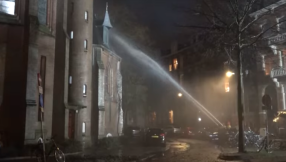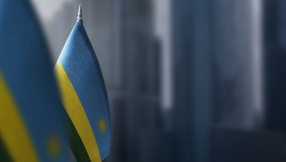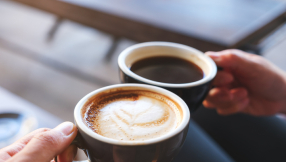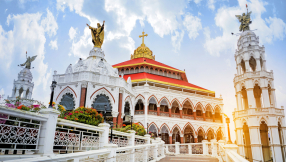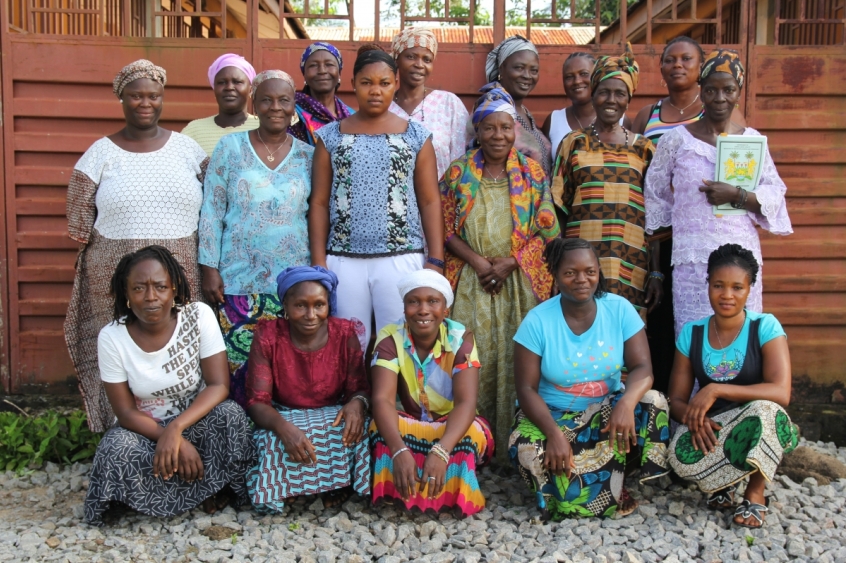
Sierra Leone has had enough disasters in the past decades. First a civil war that killed over 50,000 and finished in 2002, followed by the Ebola crisis that left more than 4,000 dead and ended just earlier this year. Now, as the country recovers from the aftermath of the deadly virus, sexual assault cases have reached a new peak. This, however, is due to change in one of the villages in Bo district, where a group of 17 women have declared their intention to chase down rape perpetrators and bring them to justice.
Itasu and her friends don't look at all intimidating at a first glance, but when they get to business, they certainly are. Itasu, a mother of three in her 40s, wears a silver necklace bearing the word "success" – and she is definitely having that.
The group of 17 all live in the same village about an hour's drive from the district capital, Bo. Nestled among Sierra Leone's lush palm trees and deep green bushes, it contrasts with the rich red of the earthy roads and feels a peaceful place. Children play with sticks and tyres and students return from school in blue uniforms, carrying books in plastic bags. Although the 1991-2002 civil war has passed and the country has gone through a complex but successful reconciliation process, remnants of the conflict can still be seen everywhere. Next to the newly-built huts are ruins of burnt houses, now overgrown with white flowers and a children's playground. "I watched my mother get killed by rebels with machetes here," one of the villagers recalls. His name is James and his family has built a new home, right next to the remains of the old one.
When Ebola struck in 2014, the village was badly hit. Hundreds of people got infected and died, many of them children. "Ebola came with lots of problems. It messed up our culture," Itasu explains. "We used to visit sick people and went to funerals to grieve with our friends. But when the virus came, we were forced to stay away and we couldn't offer much support. This goes against our culture, and many didn't follow through at first."
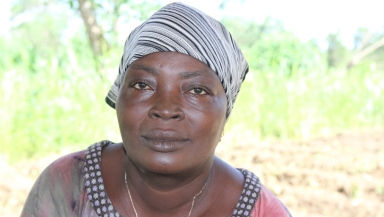
Many parents and caregivers died and a large number of survivors lost their jobs, which made providing food and bare essentials like clothes difficult. After the peak of the crisis, rape cases rose dramatically across the country, including in Itasu's village. While there are no official statistics - resulting in part from the fact that many women won't admit to being raped out of shame - Itasu estimates that a third of the girls in her village aged between 15 and 20 have been assaulted or raped.
While there are clear laws in Sierra Leone that condemn rape and punish it with both a prison sentence and a fine, many girls don't speak out immediately and once they do, the men have already disappeared. A joint report published by UNICEF, Plan International, World Vision and Save the Children indicates that sexual violence against girls has increased in all districts and every child interviewed for the report could think of at least someone who had been raped.
"Young girls have become desperate and with no food on the table or money to purchase school supplies, they have fallen prey to men offering them exactly that. Men lure them into their houses by promising a meal or money and once a girl has entered, she gets attacked and assaulted," she explains. "As a mother myself, I knew this had to stop."
Itasu recalls how she discussed the issue with other women in her village, who together decided to take action.
Today, the group is composed of 17 mothers who come together on a weekly basis and are supported by international aid agency World Vision. The women are constantly on call, working together with local authorities and within their community. "News spread quickly in our village and as soon as we hear about a rape case, it's go time for us!" she says. "The perpetrators try to get away fast, but in the last month, we were faster several times and brought three men behind bars. Having these men locked away in prison is one of our main goals. We do whatever we can to chase them, sometimes on foot and other times on a motorbike, if we have one available. It's all about being proactive and acting fast. We won't stop until we reach justice."
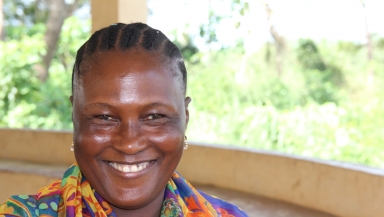
For the women, it is not only a matter of justice, but also of making their community stronger and helping girls reach their full potential. Both World Vision and local authorities support the women by offering up their office space and help with supplies. "We are all mothers ourselves and want the best for our children," says Dorcas, who has three girls at home and thinks she's in her mid 50s, although she doesn't know for sure. She recalls a recent incident in the village when a 12-year-old girl, Lilly*, was raped by a 45 year-old man: "We know who it is, but he is on the run."
As Dorcas explains, the man tried to lure Lilly into his home when she wandered by two weeks ago, offering her money and a warm meal (a desirable prospect for many hungry young children). Once the girl was inside his house, he told her to undress. She refused and started screaming, but he pushed a piece of cloth in her mouth to silence her, and then raped her. Immediately afterwards, the man tried to bribe her, offering gifts and money in exchange for silence. But it didn't work - Lilly's parents took her to hospital where the rape was confirmed. "It's tragic," says Dorcas. "She is at home now, but doesn't leave her house and stopped going to school because she is so ashamed. Rape comes with an attached stigma here and it's hard to get past it."
Dorcas has joined the group in an effort to combat exactly that. Rape cases emerge almost daily in the village, with the average age of victims around 15. Often, family members don't get involved when their daughter or sister has been assaulted, as they too feel ashamed. Many families instead just carry on, while the girls are left to deal with their trauma individually.
"That's why we're here," Dorcas says. "We want our children to grow strong and become educated, so we first have to be strong for them. Besides chasing after the perpetrators, we also try to help rape victims regain their lives. We talk to them, encourage them and offer whatever we can."
With the Ebola crisis wiping out so many parents, Sierra Leone's orphan rates have risen drastically. "We try to take care of as many orphans as possible, offering them practical help and food," says Dorcas, who explains the funds come from the pockets of the women themselves. Most of the 17 work at a nearby market and are able to stash a few of their coins away to help the cause. They contribute the equivalent of a couple of pence a week, though this goes a long way in Sierra Leone.
Both Dorcas' and Itasu's immediate family were spared during the Ebola crisis, but many of the other 15 women have lost husbands, parents or children. "We're here to encourage each other, make our village safe and try to combat rape completely," says Itasu. She is pleased with the success of their work – and is not alone in this.
"Even my husband is proud of us and reminds me every week to attend our meeting," she says. "Whenever we hear of a rape and need to run out immediately, he supports me as much as he can. Our country has recently lived through a war and a deadly virus. We are resilient and want to empower the next generation to be just like that: strong, fighting for what is right, and unwilling to give up – ever!"
*name changed to protect the child's identity










